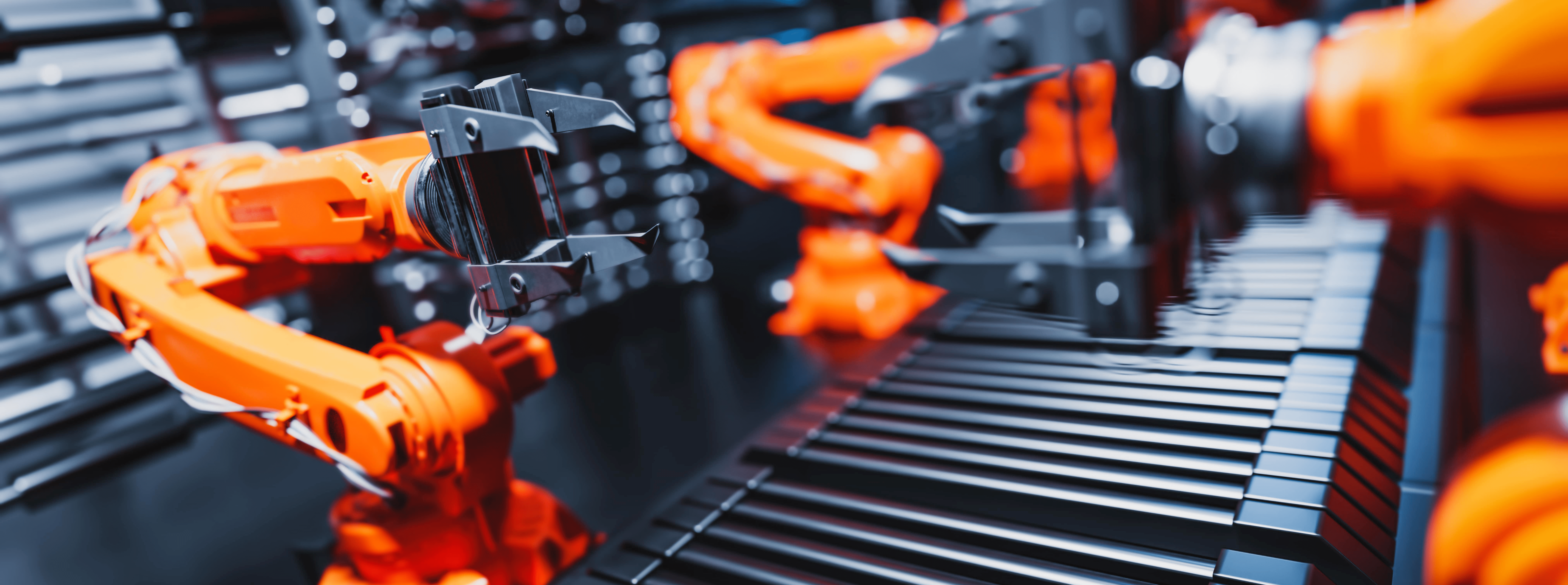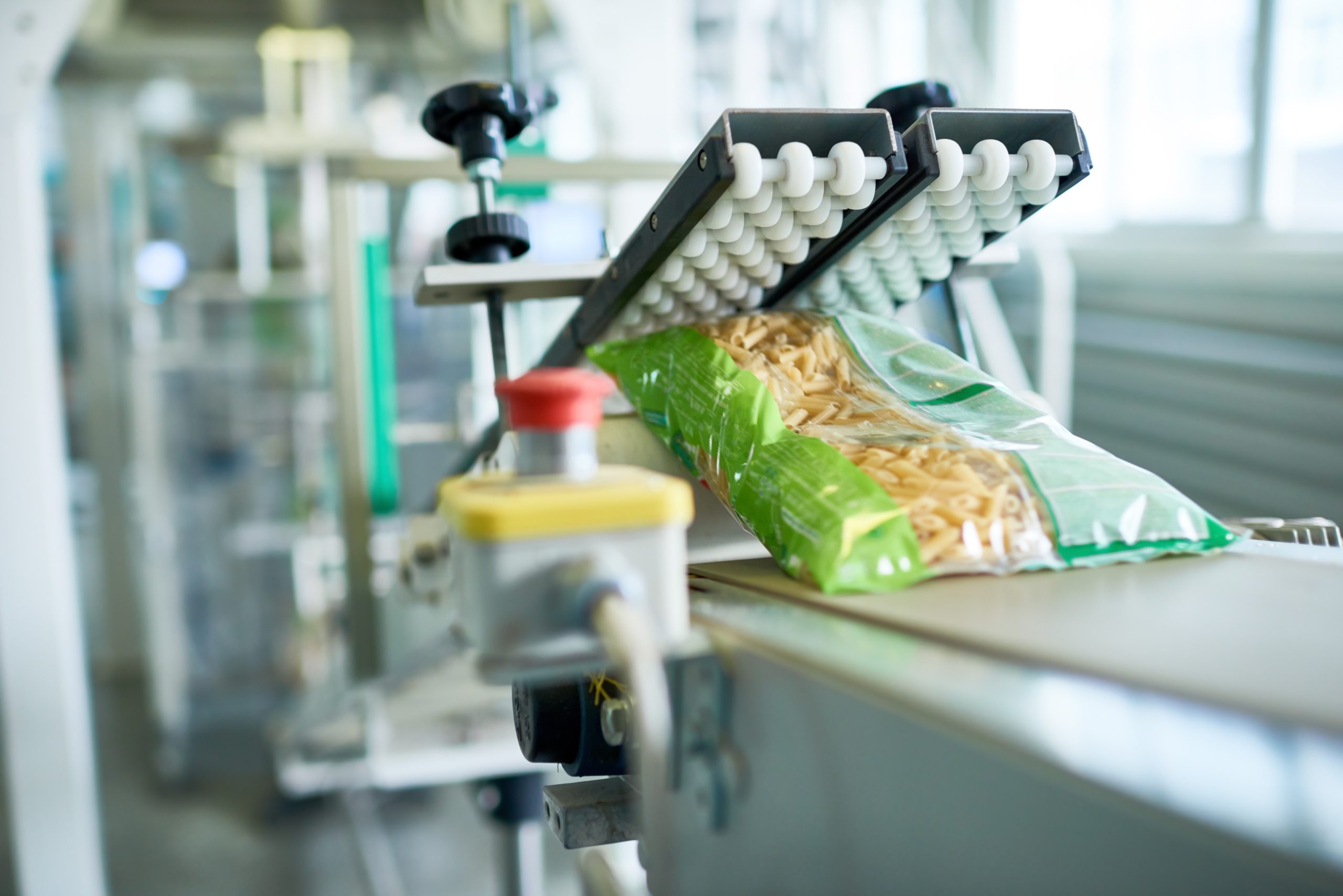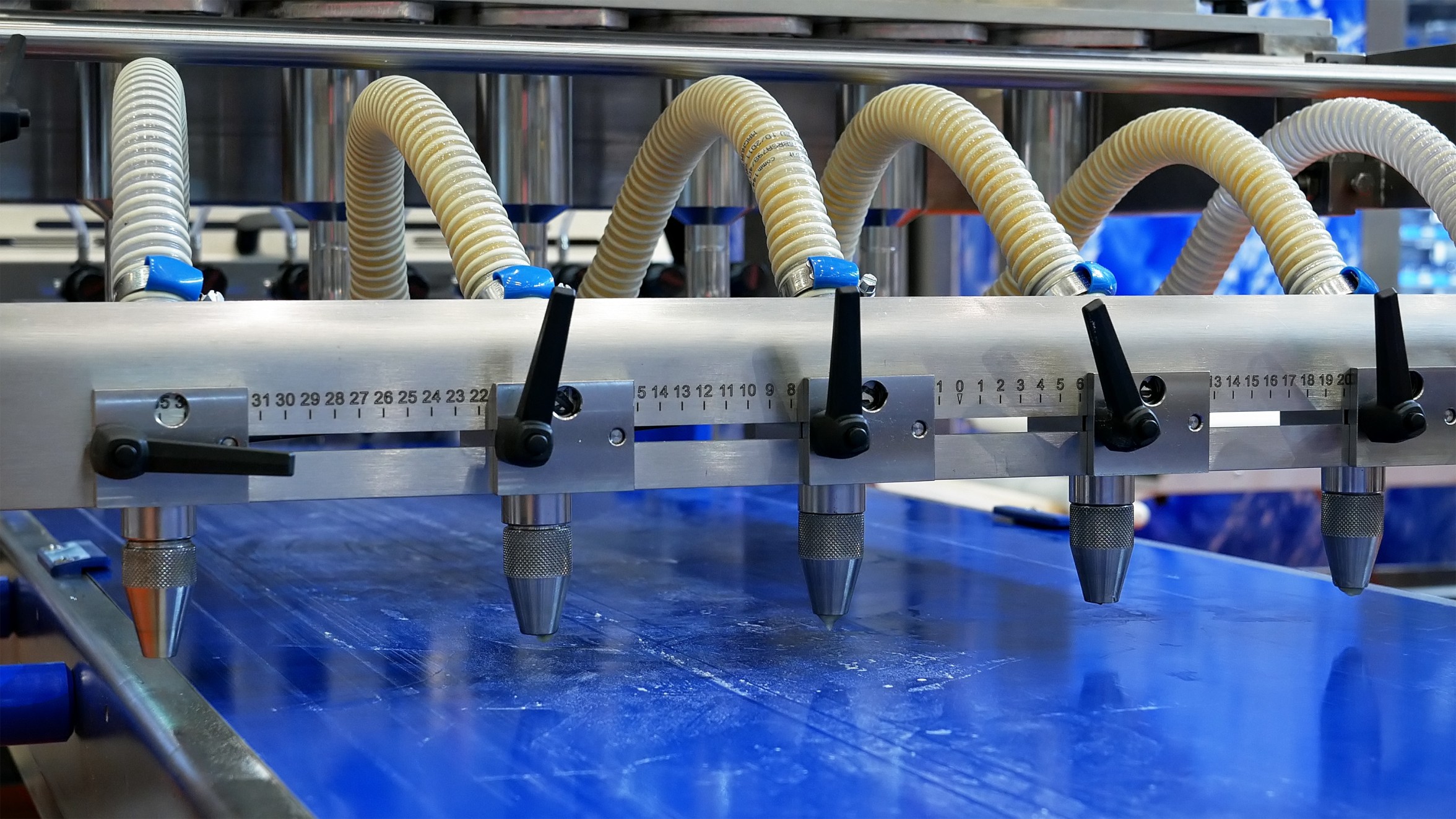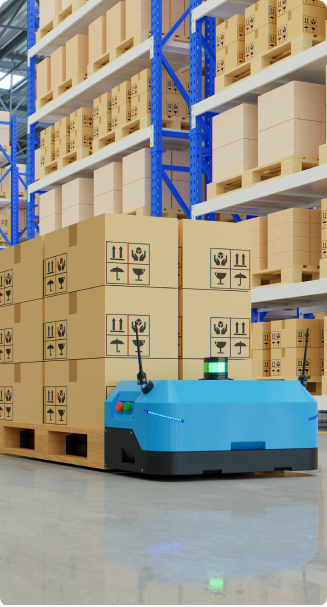5 Key Digital Technologies That Are Transforming The Manufacturing Industry

1. Industrial Internet of Things (IIot)
What is IIOT?
IIoT is the network of sensor-fitted industrial devices that is connected to the internet to collect and share data.
Assuming your current manufacturing ecosystem runs on manual or semi-automated workflows, gathering huge amounts of data about your products not only consumes more time but delays your decision-making, which in turn leads to delayed responses to your customers.
Industrial Internet of Things (IIoT) is the simple solution here. It connects various industrial products using network sensors through the internet to help you make informed decisions using real-time data.
It incorporates technologies like big data, machine learning, machine automation, and cloud integration to perform:
- Resource Management
- Proactive Maintenance
- Supply Chain Management
- Production Analysis

Let’s take a practical use case and understand the IIoT concept better.
You own a food packaging plant and one of the biggest losses from the production process comes from wasted raw material and perishables. Leveraging sensors and IoT devices within your production process can help automatically track demand, check current stocks and place orders only when required. This can help eliminate waste and lower overheads.
Not just this, IIoT solutions can help detect damage and degradation of packaging and products during transit and storage using special sensors, there by help you maintain quality of your products and eliminate unnecessary costs traditionally borne due to ill-handling of products.
Benefits of IIoT in Manufacturing
According to a report, IoT in manufacturing is expected to reach USD 53.8 Billion by 2025 with a CAGR of 10.1%.
- Real-time monitoring of your equipment
- Preventive/predictive maintenance
- Reduced operational costs
- Smart supply chain management to prevent thefts and abnormalities
- Better decision-making and customer support
2. Artificial intelligence
How is Artificial Intelligence Powering Modern Manufacturing?
AI combined with cloud and IoT can do wonders for your business by dramatically improving the efficiency of the equipment, reducing operating costs, and improving ROI.
Many authors, philosophers, and mathematicians throughout history believed artificial intelligence cannot surpass the realm of fiction.
However, AI has paved its way throughout the globe in many forms. It was in 1961 that artificial intelligence had its first glimpse in the manufacturing industry. George Devol created the first industrial robot, Unimate, an automated assembly lines in one of General Motors’ production units.
AI can come a long way from there. Now, AI has some high-end algorithms that can completely transform the way your manufacturing business operates. Here are some of the major ways AI can be a savior for your manufacturing business.

1. Prevents Hazards
As you know, no matter how cautious you are, accidents and injuries in industrial plants are inevitable. With the help of AI, almost 90% of these accidents can be prevented.
If you deploy a feature like remote access control for operating heavy machinery, your workers can be free from working in hazardous situations as they don’t have to manually lift up or control this heavy equipment.
So, by utilizing proper AI protocols, you can achieve zero accidents in your industry.
2. Improves ROI
Manufacturers around the world have seen as much as 40% increase in their productivity. How? Let’s take another use case. You own a agricultural equipment and vehicle manufacturer. Most of your machineries perform heavy-duty tasks, and are quite expensive. Embedding an AI-powered component in your machinery can help predict the ideal time for maintenance, based on data collected overtime. This can not only help better plan the production time accordingly, reduce costs of downtime due to wear and tear, but also allow you to plan inventory requirements beforehand.
All these will, in turn, reduce the operational costs, which skyrockets your ROI.
3. 24X7 Production
No matter how efficient, skilled, or hard-working your human workers are, they cannot work non-stop and are prone to make human errors once in a while.
AI can not only help you keep the production going round the clock, but also ensure the products are made without any defects every time. This means happy customers and more profits to you!
Some other benefits of AI in manufacturing:
- Reduction of transportation and warehouse maintenance costs
- Quality control throughout the manufacturing process
- Automation of routine tasks
Top Companies leveraging AI in Manufacturing
Enterprises worldwide are augmenting their manufacturing processes using AI-powered quality inspection, maintenance, new product development, and more.
- BMW group harnesses the power of AI to study the images of various components during production to spot deviations instantly.
- Nokia uses an AI-based app to alert the operator at the production unit if there are any inconsistencies during production.
- Thales SA, a global supplier of electronics systems, uses AI to maintain high-speed rail lines throughout Europe.
- Canon created an advanced Defect Recognition system to test their high-precision components of machinery for increased accuracy.
- Nissan is implementing new AI models to create new design models for their vehicles.
3. Cloud Computing
Cloud computing in Manufacturing
Cloud computing virtually can transform almost every aspect of a manufacturing company, from ERP, data analytics, finance management to integrating supply chains and workforce training.
Cloud computing connects various databases, software, and servers through the internet, making it possible to maintain a remote database to retrieve the required data on demand.
When it comes to manufacturing, cloud computing allows you to seamlessly connect different industrial plants, so all pertinent data can be maintained in a single database over the internet.
For modern manufacturing, fast production and delivery are essential to keep up with the ever-increasing customer demands. With all your company’s data in one place, your employees and the supply chain team can access the data from any device on time to make informed decisions.
Benefits of Cloud Computing in Manufacturing
As of 2021, more than 66% of manufacturing companies across 17 countries are implementing cloud for data management, supply chain collaboration, and data security.
- Managing large volumes of data under one roof
- Share data across the globe within seconds
- Operational efficiency
- Reduced operating costs as there’s no requirement for IT maintenance
- Your entire business knows what’s the current status of the project running
- Streamlines workflows for reduced errors
- Fast data processing and sharing
4. Robotic Process Automation (RPA) & Hyperautomation
RPA in Manufacturing
RPA allows businesses to be on the frontline by automating most of the daily tasks at a large scale.
Manufacturing doesn’t just involve production. It also involves repetitive tasks like managing assets across various departments, which not only require a lot of human resources but also demand a lot of your valuable time. Moreover, man-made errors are quite common in these scenarios.
So, what’s the solution? It’s automation! Robotic Process Automation (RPA) is one of the imperative domains in the automation field, which makes it a cakewalk to build, design, and manage software robots that can emulate numerous human actions like understanding and extracting data, performing other defined tasks.
Coming to the manufacturing industry, RPA has already been in use for decades to monitor production activities across the site. In an effort to enhance the overall efficiency, the sector is now employing RPA even in the back offices. With this implementation, routine tasks across the industry like payments processing, import and export processing, generation of expenditure reports, and finance contracts will become error-free and time-saving.
Manufacturing isn’t just limited to the production floor, and the supporting back offices. Today, with the rise of technology adoptions, there is a need to maintain and manage digital assets and processes as well. For that, industry leaders today are using RPA along with AI and machine learning to automate and connect disparate processes such as integrations, DevOps, monitoring, and management to boost efficiency and productivity at scale.
Benefits of RPA in manufacturing:
- Maximizing productivity
- Increase in savings
- Reduction of resource costs
- Improved accuracy in the assigned tasks
- Increased agility during operation
Applications of RPA in Manufacturing:
1. Purchase Order Creation – With RPA, the entire process of PO creation can be automated based on a workflow, which takes care of data extraction from independent systems, seeking email approvals from respective department heads, and processing the concerned requests of PO generation.
2. Inventory Management – RPA helps in automating many supply chain processes like reordering products, sending notifications on the stock levels, conducting audit trails, and creation of live dashboards and reports.
3. Customer Service – RPA can take up 65% of tasks your customer service department currently holds, like replying to customer queries, tracking the shipment status, updating customers with the status, and closing their cases.
When you implement IoT + AI + RPA in your manufacturing business, you can witness
upto
200%
higher factory output
upto
40%
lower operating costs
upto
50%
Faster Time-to-market
5. Intelligent Mobile Applications
Mobile Applications in Manufacturing
Mobile apps for manufacturing allow various stakeholders to easily and securely access necessary data related to products, machinery, and operators from anywhere.
The working of a manufacturing plant can be chaotic and takes a lot of close monitoring and inspection to ensure the machinery is running properly. As it is not safe for humans to access all areas in the plant, especially when high-end, hazardous machinery is running, to seamlessly handle the internal operations across the plant, technology is imperative.
Mobile apps, in particular, play a vital role in manufacturing as they can:
- Connect with all the tools and machines across the plant
- Generate data of every step of the workflow
- Prevent chaos at the facility by improving quality checks
- Track location of the location, shipment status, and delivery status
- Help in building digital simulations of a physical product – ensures quality product building
- Auto-store data of the machines, sensors, and other operators to preferred locations
Top Mobile App Types for the Manufacturing Industry
As per a Forbes article, 81% CEOs of manufacturing businesses consider mobile technology to be strategically important for their success.
Mobile applications for any business come in many forms and you need to get the right developer to build apps based on your necessities. Here are some of the most used mobile apps by experts in manufacturing:
- IoT Apps: To track the health of machinery through sensors
- Logistics Apps: To provide real-time location-based inventory data to employees
- Quality Control Apps: To automatically email reports and store them on cloud servers
Benefits of mobile apps in manufacturing:
- Quick decision-making
- Easy data access and sharing
- Increase in productivity of employees
- Easy to track shipments
- Data access of all the machinery

Conclusion
The smart factory market size is expected to touch USD 134.9 billion in the next 5 years from around USD 80.1 billion in 2021.
- Taking a deep dive into your business and understanding your current and future objectives.
- Creating a vision for your transformation journey.
- Creating a realistic and well-rounded strategy for implementation.
- Aligning decisions such as areas that require digital transformation and related budget etc with the said strategy.
“
At least 40% of all businesses will die in the next 10 years … if they don’t figure out how to change their entire company to accommodate new technologies.
John Chambers




